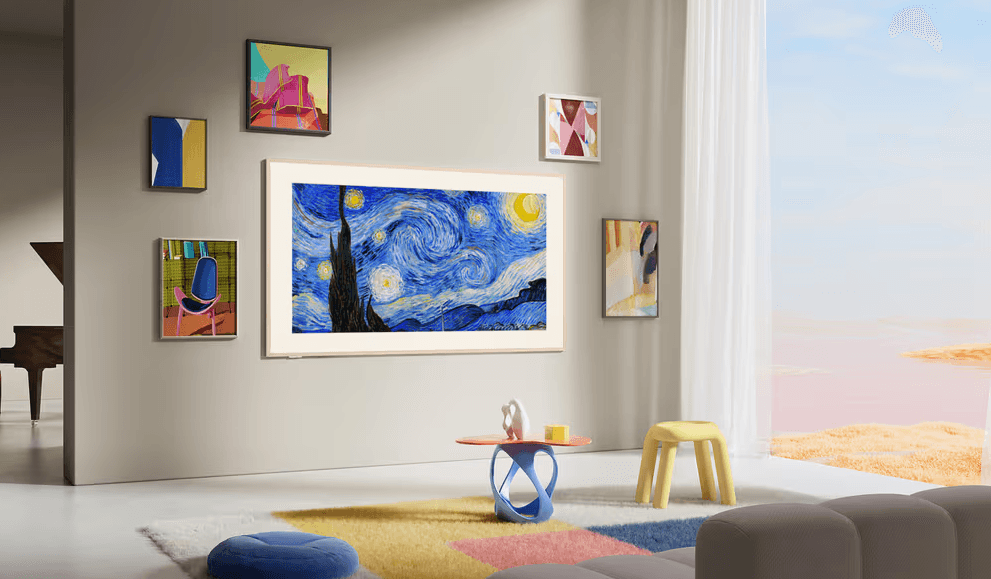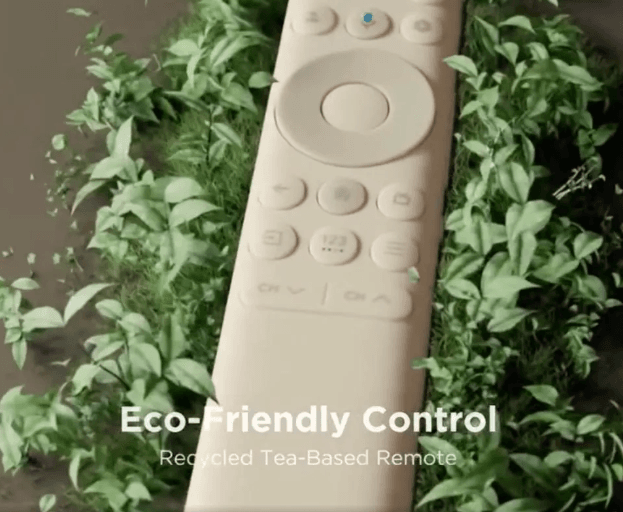
Today’s TV industry is super competitive, with the biggest brands striving to stand out with ever-larger screens and increasingly superior display technologies, but that’s not all. They’re also trying to outdo each other in terms of sustainability, and in this regard it looks like TCL has stolen a march on its rivals.
The company has developed an innovative new eco-friendly material called TCL ECORA, which is set to be used in not only TVs, but also other appliances like air conditioners and refrigerators. It’s crafted from a mixture of upcycled plastics and ceramic waste, and the company claims that it’s a major step forward in the push for more sustainable manufacturing.
TCL ECORA is a composite material that the company showed off for the first time at IFA 2025 in September, and now we know more about it. The material will enable TCL to replace the plastic that’s normally used for components such as the back panels of its TVs, and it has significant advantages. For instance, it’s much harder and more durable than plastic, and it’s said to have a more “premium” finish that gives its products the appearance of a higher quality, and smoother feel when touched.
The first product to be built with TCL ECORA is the company’s art-inspired NXTVISION TV, which is designed to look like a picture frame and display digital artworks when not being used to watch movies. It’s the company’s answer to Samsung’s iconic “The Frame” TV, and much like that model, it’s incredibly thin, enabling it to be mounted almost flush to the wall, just like a real picture frame. Coupled with its matte anti-reflective display and a choice of wood-effect and off-white bezels, the NXTVISION’s design is so convincing that most people won’t even realize they’re looking at a TV, instead of a real work of art, until they get up close.

According to the company, the NXTVISION TV’s entire back plate is made from TCL ECORA, which dramatically reduces the amount of plastic used in its design. As an added benefit, TCL is able to manufacture ECORA-based products using a 3D printing process, which is also more sustainable.
TCL said it obtains the ceramic waste for the material from a city called Jingdezhen, which is known as the “porcelain capital” of China. It was there that the ancient Chinese first started manufacturing porcelain products on a large scale, more than 1,700 years ago, and it remains one of the most important producers of ceramics even today, with its products renowned for their high quality.
To manufacture TCL ECORA, the company collects waste from dozens of factories in Jingdezhen, then grinds it up into a fine powder that’s used as a “high-performance plastic filler”. The process involves mixing the ceramic powder with a small amount of plastic to achieve the desired durability and smoothness that’s essential for premium electronics products.
TCL developed the material in partnership with Chris Lefteri, founder of the sustainable design company Chris Lefteri Design. According to Lefteri, the use of recycled ceramics instead of plastics gives products greater strength and density. “Cool, smooth and stone-like to the touch, it redefines how consumer electronics and appliances can look and feel,” he said. “We are upcycling waste that would otherwise end up in landfill.”
The project was conceived by TCLGreen, which is an organisation that aims to increase the sustainability of the company’s business operations. Earlier initiatives have already led to the adoption of more energy-efficient technologies, carbon emission monitoring systems, clean energy sources and greener supply chain practices, contributing to a 1.78 million ton reduction in TCL’s carbon emissions in 2024.
Going forward, the company plans to use TCL ECORA to replace plastic in a wide range of electrical products, and it’s also working on other initiatives that will make it even more sustainable. For instance, the NXTVISION TV is said to come with an eco-friendly remote control that’s – astonishingly – made from recycled tea leaves.

As most people are aware, the Chinese like their tea and they drink an awful lot of it, and so the used tea leaves are a substantial resource that would normally be thrown away if not recycled in such an ingenious way.
TCL said consumers will be able to see and feel the quality of TCL ECORA for themselves when the company showcases a range of upcoming products featuring the material at the Piazza del Duomo in Milan from December 6 to January 6, as part of its sponsorship of the Milan Olympic Winter Games. It will then launch more new products with TCL ECORA at the 2026 Consumer Electronics Show in Las Vegas next month.